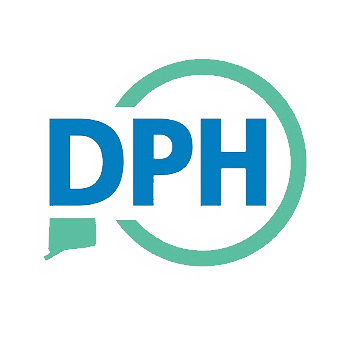Medical Assistant Information
The Department of Public Health, through its Practitioner Licensing and Investigations Section, regulates a variety of health professions. In this capacity we have reviewed written documents and commentary from professional groups representing medical assistants and medical assistant educators, at the local and national level. Also, we have reviewed standards for the education of medical assistants. Based upon this review we provide the following informal advice.
A number of regulated professions have scopes of practice, which may impact, or be impacted by, roles of the medical assistant. For example, the Board of Examiners for Nursing has issued a Declaratory Ruling - Delegation by Licensed Nurses To Unlicensed Assistive Personnel. This document outlines parameters within which a licensed nurse may delegate to unlicensed assistive personnel, engaged in assisting nurses in carrying out nursing activities. Also, Section 20-9 of the General Statutes of Connecticut dictate to whom a licensed physician may delegate aspects of care. Medical assistants are not identified in that listing of providers. While emergency services providers are certified, not licensed, their roles also are regulated.
However, there is a realm of unregulated activity which may be engaged in by an unlicensed person, such as a medical assistant. If these activities do not require licensure as a health care provider, or are not considered to be nursing activities, which can only be delegated by a licensed nurse to an unlicensed person, then we do not see the conflict in the functioning of medical assistants with licensure acts. Examples of specifically prohibited activities are radiography and medication administration by any route (including oxygen, immunizations, and tuberculin testing). Also, the professional judgment piece of any regulated profession, e.g., assessment, diagnosing, planning, and evaluation of clients or their care, can never be delegated. However, data collection by unlicensed persons, to be used by licensed professionals within the aforementioned activities, is not a licensed activity. Also, health maintenance education not related to a specific diagnosis, and thus, not requiring judgment or adaptation of a teaching plan, does not require a license. The assisting in the handling of equipment in preparation for procedures, or follow-up to procedures, including equipment maintenance usually is outside of the realm of the restrictions pertaining to regulated professions.
It is understood that medical assisting schools prepare graduates to function in a number of states, and thus, specific content must be addressed. Clinical experiences which requires health professional licensure cannot be engaged in within Connecticut. Simulation exercises may occur, and clinical placement in other states, consistent with their practice acts, may be feasible.
This is not intended to be binding on any party and is not a Declaratory Ruling. The Department and, if applicable, respective Board or Commission, will not be precluded from adjudicating the issue in a contested case forum should the necessity arise.
Please select this link for information regarding Connecticut residents certified by the American Association of Medical Assistants and the National Healthcareer Association.

